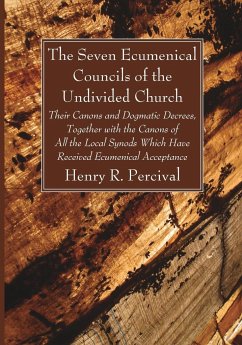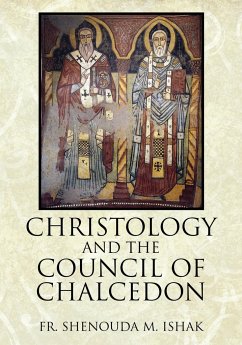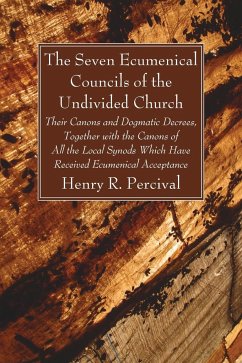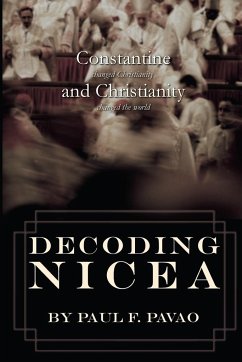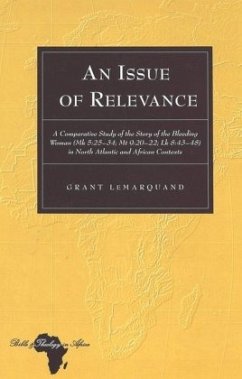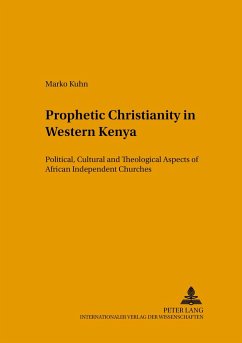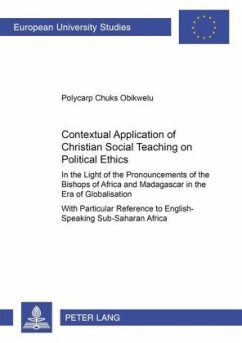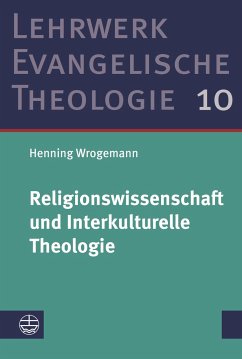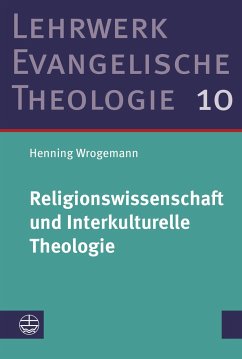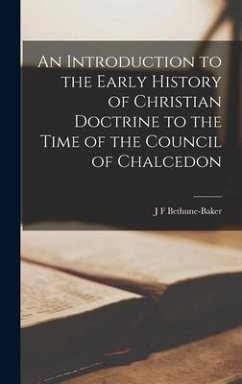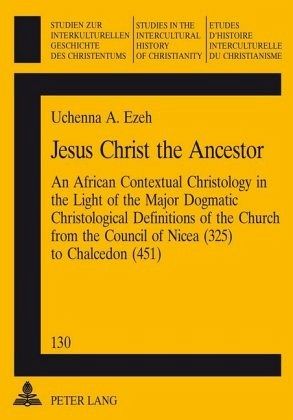
Jesus Christ the Ancestor
An African Contextual Christology in the Light of the Major Dogmatic Christological Definitions of the Church from the Council of Nicea (325) to Chalcedon (451). Dissertationsschrift
Versandkostenfrei!
Versandfertig in 6-10 Tagen
89,95 €
inkl. MwSt.

PAYBACK Punkte
0 °P sammeln!
There is a plethora of Christological initiatives to creatively and firmly root Christianity in Africa without either Christianity compromising its prophetic vocation or the healthy cultural values of the people being destroyed. From the backdrop of the African religio-cultural scenario and the patrimony of the Church these Christological models seek to address the question, "but you, who do you say that I am?" (Mt16:15). It is a Christological question which underlines the need for a relevant theology which arises from and is accountable to the people.The African cult of the ancestors epitomi...
There is a plethora of Christological initiatives to creatively and firmly root Christianity in Africa without either Christianity compromising its prophetic vocation or the healthy cultural values of the people being destroyed. From the backdrop of the African religio-cultural scenario and the patrimony of the Church these Christological models seek to address the question, "but you, who do you say that I am?" (Mt16:15). It is a Christological question which underlines the need for a relevant theology which arises from and is accountable to the people.
The African cult of the ancestors epitomizes the African quest for salvation (soteriology), goodness in the society (ethics), relationship with one another (community), union with God (spirituality), and the end of the human person (anthropology and eschatology). These African values are perfectly fulfilled in Christ. This work singles out the African ancestral Christological model with its paschal and ecclesiological dimensions to demonstrate, that even though no human term can exhaust the mystery of Jesus Christ, the ancestorship of Christ as perfect and analogical model opens up a mutually enriching dialogical encounter between Christianity and the African culture. Through the analysis and application of the Christological conciliar definitions of the Church from the council of Nicea to Chalcedon, this African confession of Christ as the ancestor is weighed on the balance of the classical Christological orthodoxy.
The African cult of the ancestors epitomizes the African quest for salvation (soteriology), goodness in the society (ethics), relationship with one another (community), union with God (spirituality), and the end of the human person (anthropology and eschatology). These African values are perfectly fulfilled in Christ. This work singles out the African ancestral Christological model with its paschal and ecclesiological dimensions to demonstrate, that even though no human term can exhaust the mystery of Jesus Christ, the ancestorship of Christ as perfect and analogical model opens up a mutually enriching dialogical encounter between Christianity and the African culture. Through the analysis and application of the Christological conciliar definitions of the Church from the council of Nicea to Chalcedon, this African confession of Christ as the ancestor is weighed on the balance of the classical Christological orthodoxy.



